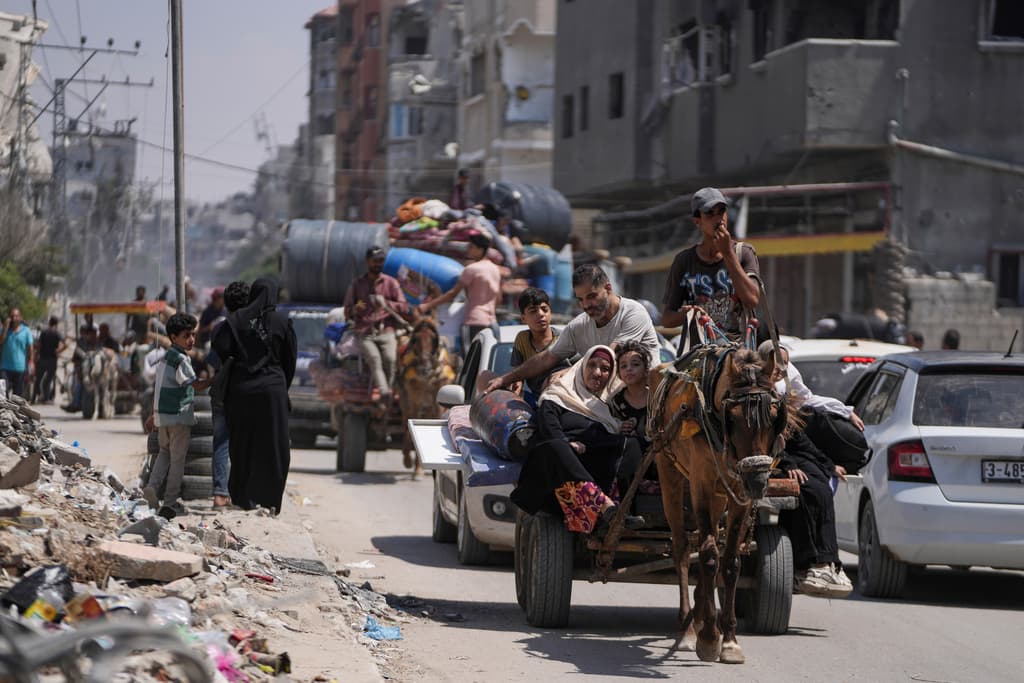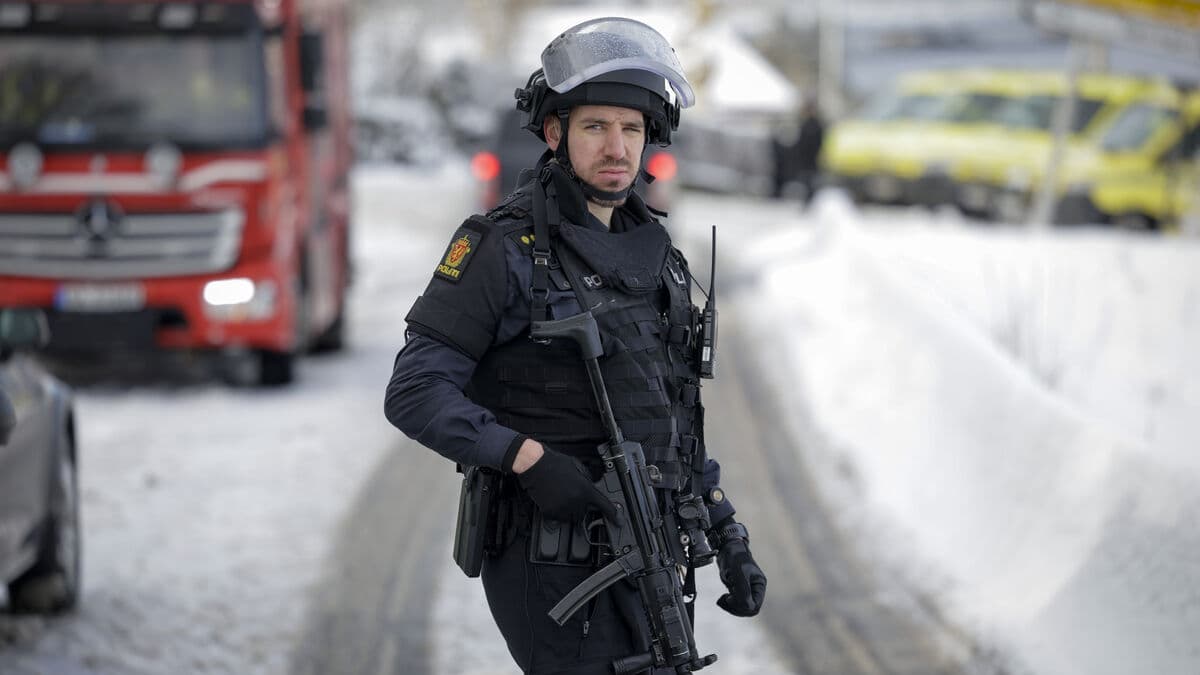During the first three weeks of August, the Israeli military issued eleven evacuation orders via SMS, social media, and flyers. This urged 250,000 Gazans, almost all already on the run, to leave the places where they had taken shelter.
"The Israeli army will operate with force against terrorist organizations in this area. For your safety, we urge you to evacuate immediately", reads an order that has been sent out in Khan Yunis in the southern parts of Gaza.
Every time we get somewhere, we receive a new evacuation order two days later. This is no way to live, says Palestinian Haitham Abdelaal.
"No safe place"
Five-child mother Amneh Abu Daqqa does not see the point of moving again.
Where are we supposed to go?
There is no safe place, there are air strikes everywhere, she says.
The evacuation orders are intended to inform Palestinians which areas will be subject to military operations. However, according to the UN's Muhannad Hadi, they are putting residents' lives at risk instead of protecting them.
"They are forcing families to flee again, often under attack and with the few belongings they can carry, into an increasingly shrinking area", he says in a statement.
Civilians are not receiving medical care, protection, water, and humanitarian supplies when they are forced to move from one destroyed place to another, he says.
"Agree"
International humanitarian law demands that civilians be protected.
"The way forward is as clear as it is urgent: Protect civilians, release hostages, facilitate humanitarian aid. Agree on a ceasefire", urges Muhannad Hadi.
The evacuations pose a threat to UN personnel working in Gaza and affect humanitarian institutions, according to UN spokesperson Stéphane Dujarric. He mentions that the UN's World Food Programme (WFP) no longer has access to its warehouse in Dayr al-Balah.
This was the third and last operational warehouse in the central Gaza area, he says.






